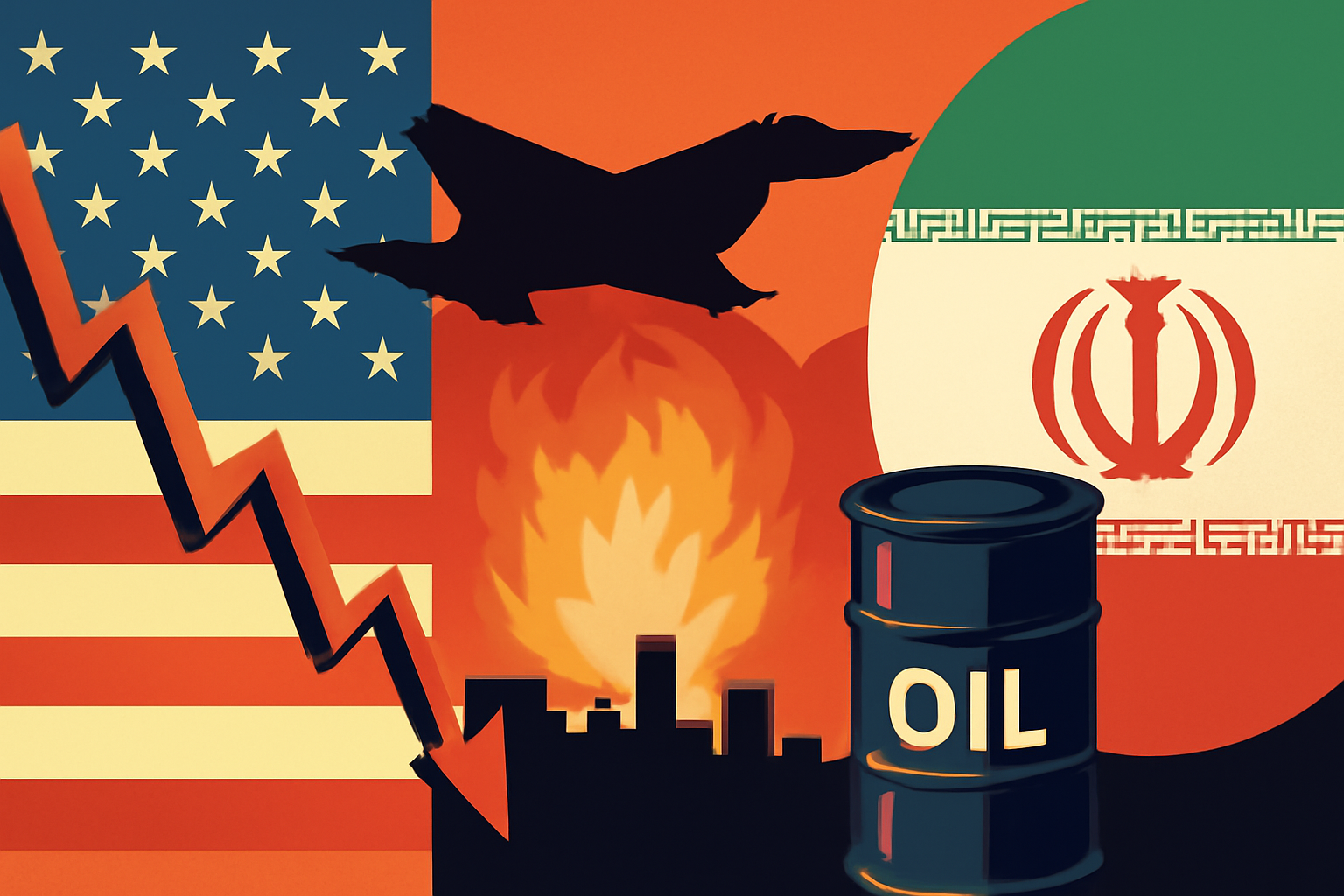Global Conflict Sends Shockwaves Through Wall Street
Just as markets began to steady from inflationary anxieties and shifting Fed expectations, a geopolitical flashpoint has thrown a fresh wrench into investor confidence. On June 13, U.S. equities opened sharply lower following Israel’s targeted military strikes on Iranian nuclear and military facilities, a dramatic escalation that has reignited fears of regional war in the Middle East.
In a matter of hours, S&P 500 and Dow Jones futures dropped over 1%, with the tech-heavy Nasdaq also dipping into the red. Energy markets, meanwhile, surged: U.S. crude oil jumped by more than 7%, and Brent crude soared as much as 14%, marking one of the sharpest intraday moves of 2025. The ripple effects were immediate, with risk appetite evaporating and market participants scrambling for safe havens.
Why This Matters for Investors
Geopolitical risks have returned to the forefront, and their influence on market dynamics cannot be overstated. While Wall Street often brushes off isolated military flare-ups, the magnitude and potential escalation of this conflict—given Iran’s retaliatory drone strikes—have the ingredients to trigger sustained market volatility.
“This isn’t just a headline risk. We’re talking about a major oil-producing region being destabilized. If tensions spiral, stagflation becomes a real threat,” said Lauren Goodwin, economist at New York Life Investments, in a statement to MarketWatch.
The timing compounds existing macroeconomic uncertainties. With core inflation sticky at 3.2%, and the Federal Reserve expected to hold rates steady at its next policy meeting, a spike in energy prices could reignite inflation fears—making rate cuts even more elusive.
Market Breakdown: Who’s Hurt and Who’s Hedged
- Energy Stocks: Shares of ExxonMobil, Chevron, and Occidental Petroleum gained as oil surged. The Energy Select Sector SPDR ETF (XLE) climbed over 3% in early trading, reflecting safe-haven buying in fossil fuel equities.
- Travel & Transportation: Airlines and cruise operators were among the worst hit. Delta Airlines and United Airlines each fell over 4%, as oil prices threatened to inflate operational costs.
- Tech Sector: Typically sensitive to geopolitical instability, the tech sector pulled back modestly. Nvidia, despite long-term AI momentum, dipped 1.8% in premarket trading.
- Gold & Treasuries: The price of gold spiked to a two-month high, while yields on U.S. 10-year Treasuries fell, signaling a flight to safety among investors.
Stagflation Risk: A Double Whammy
Perhaps the most pressing concern is the possibility of stagflation—a rare economic environment marked by stagnant growth, high inflation, and elevated unemployment. If energy costs continue to surge while growth slows due to geopolitical disruptions, central banks could face a no-win scenario: raise rates and risk recession, or ease policy and fuel inflation.
“We’re watching a classic oil shock play out. If prices remain elevated, everything from shipping to food becomes more expensive again,” noted Jane Foley, strategist at Rabobank, via Reuters.
Investors should be prepared for heightened volatility, widening bond spreads, and potential downgrades in global growth forecasts if the conflict persists or escalates into a broader regional war.
Actionable Investment Insight
Diversification is critical in times of geopolitical stress. Investors should:
- Review exposure to oil-sensitive sectors, both positively (energy) and negatively (transport, consumer discretionary).
- Consider increasing allocation to commodities such as gold and energy ETFs.
- Explore defense and cybersecurity stocks—companies like Lockheed Martin, Palantir, and Raytheon often see upside during heightened global tensions.
- Maintain liquidity and consider dollar-cost averaging into dips, rather than wholesale reallocations.
The Cboe Volatility Index (VIX) jumped 11% today, underscoring the rapid shift in market sentiment. For investors, this is a signal not of panic, but of preparation.
Stay Ahead with MoneyNews.Today
Markets are no longer only shaped by economic fundamentals. In today’s interconnected world, a drone strike can have as much impact as a jobs report. As we watch the developments in the Middle East unfold, staying informed and agile is more important than ever.
Subscribe to MoneyNews.Today for real-time updates, market analysis, and curated insights tailored for forward-looking investors. We help you stay one step ahead — every trading day.





